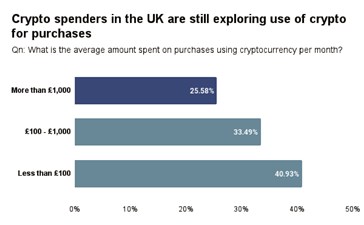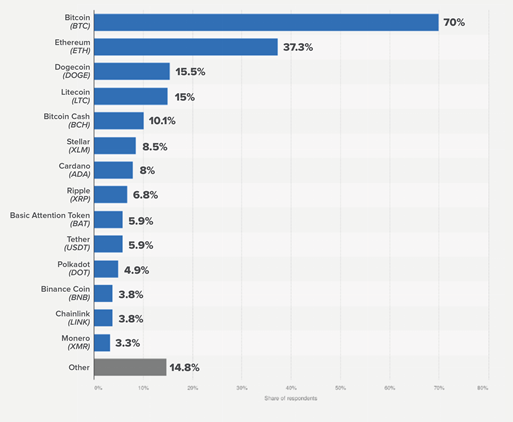What are cryptocurrencies and NFTs and why are they important for SMEs?
20 September 2022
The last few years have seen cryptocurrencies become more mainstream to the general public. Although most know the term, the basics of cryptocurrencies can still confuse many people. And now, with the recent rise in the popularity of NFTs, trying to understand the different aspects of the blockchain can be overwhelming.
In a two-part series of blogs, Ieva Caulfield, Digital Innovation Advisor at GC Business Growth Hub, will not only break down what cryptocurrency and NFTs are but also how SMEs can take advantage of them.
What are cryptocurrencies?
A cryptocurrency is a block of data used as a form of exchange. Like the British pound, crypto is an actual currency and is legal to buy and trade within the UK. A unit of cryptocurrency is called a token. Cryptos are not regulated, and their usage in the UK currently falls behind countries such as the USA and Germany. However, large companies such as PayPal now allow UK customers to use cryptocurrencies for purchases and sales.

There are various cryptocurrencies, such as Bitcoin, Cardono and Ethereum, to name a few. Although they have minimal variance, there are a few slight differences between the various kinds of cryptocurrencies. For example, Ethereum processes transactions much quicker than Bitcoin, whilst Cardano is more environmentally friendly. Below are the statistics from Statista on the most popular cryptocurrencies in the UK in 2021:

Most cryptocurrency tokens are obtained by mining the data, using computers to process many different mathematical algorithms. Some of them can take months to mine. It requires an immense amount of energy and computing power to be able to mine cryptocurrency, putting it out of reach for the majority of people. To put into perspective, data Mining bitcoin uses more energy than Denmark.
What are NFTs?
NFTs are one-of-a-kind digital commodities that have a unique identifying code. It grants the consumer possession of the original item and contains built-in authentication.
NFTs emerged in 2014. However, they only recently became more prevalent and widely used. The first ever NFT sold was called Quantum in May 2014, which last year was resold for $1.47m.

Quantum
With over 50% of physical art being fake and replicas being sold as originals, NFTs provide an ideal space for the art community since it processes ownership and authenticity. Outside the art world, NFTs are used within GIFs, tweets, videos, reels, other digital content, text, collectables, music and more.
Why are cryptocurrencies and NFTs important for businesses?
An increasing number of companies and individuals across the globe are now using cryptocurrencies and NFTs in their daily life. Over 30% of small businesses in the United States now accept cryptocurrency as a payment method, and NFT trading is expected to hit $80 billion by 2025. Last year, El Salvador became the first country to recognise Bitcoin as its national currency. In April this year, the UK government announced an NFT initiative to lead the way in crypto and increase its regulations. This highlights the increasing need to understand and utilise cryptocurrencies and NFTs in your business.
It is forecast that NFTs will positively impact the overall global economy and that going forward, businesses will start using cryptocurrencies more widely.
There is still little understanding in the UK of cryptocurrency and NFTs and how to utilise them effectively for SMEs. This presents SMEs with a massive opportunity to take advantage and get a step over their competition.
In part two of this series, Ieva will explain the opportunities for SMEs and share eight tips on how SMEs can utilise cryptocurrency and NFTs for business growth.
If you want to find out more about support for your business on Crypto, NFTs, digital innovation, transformation, or overall digital strategy, get in touch with the GC Business Growth Hub Digital Innovation team.